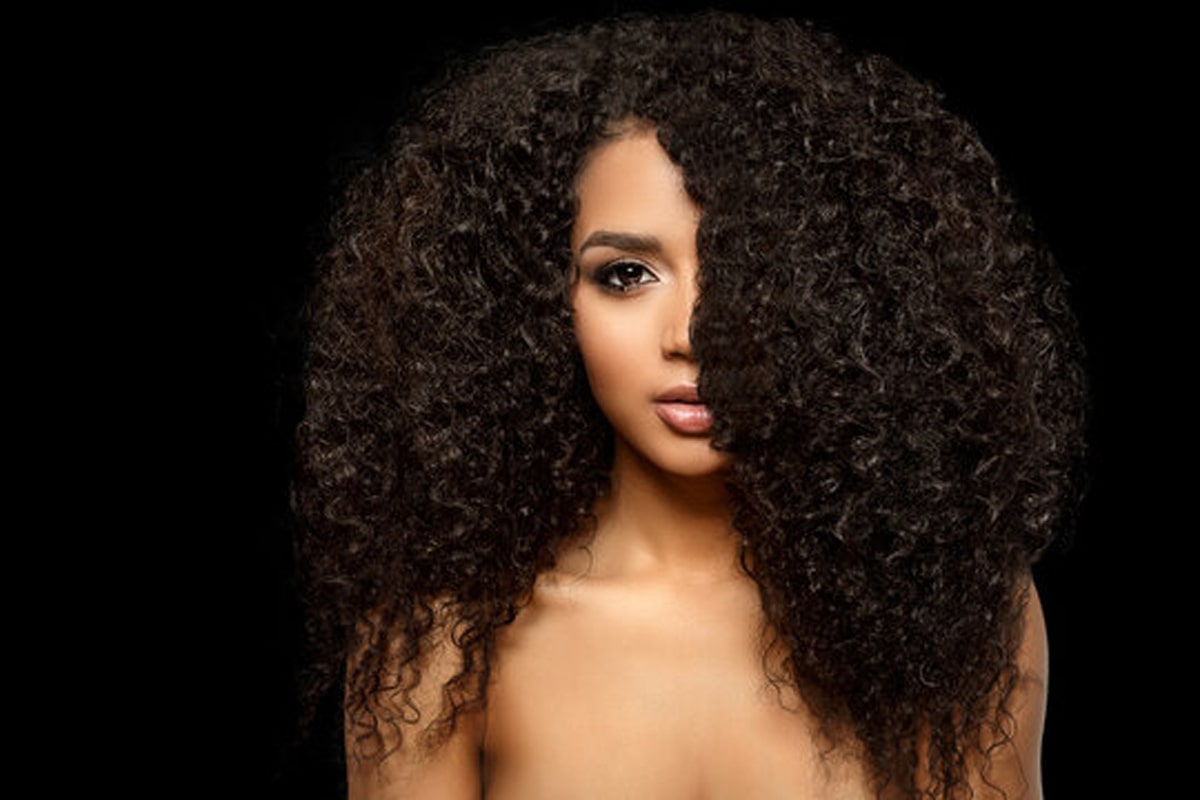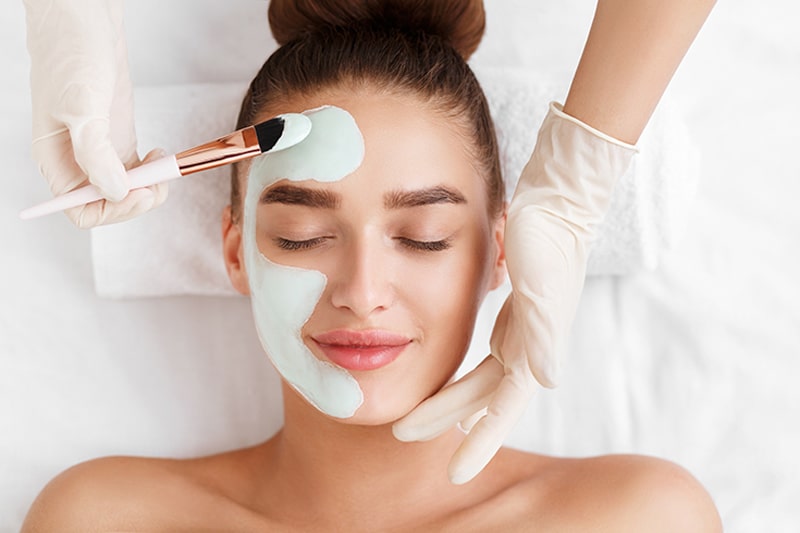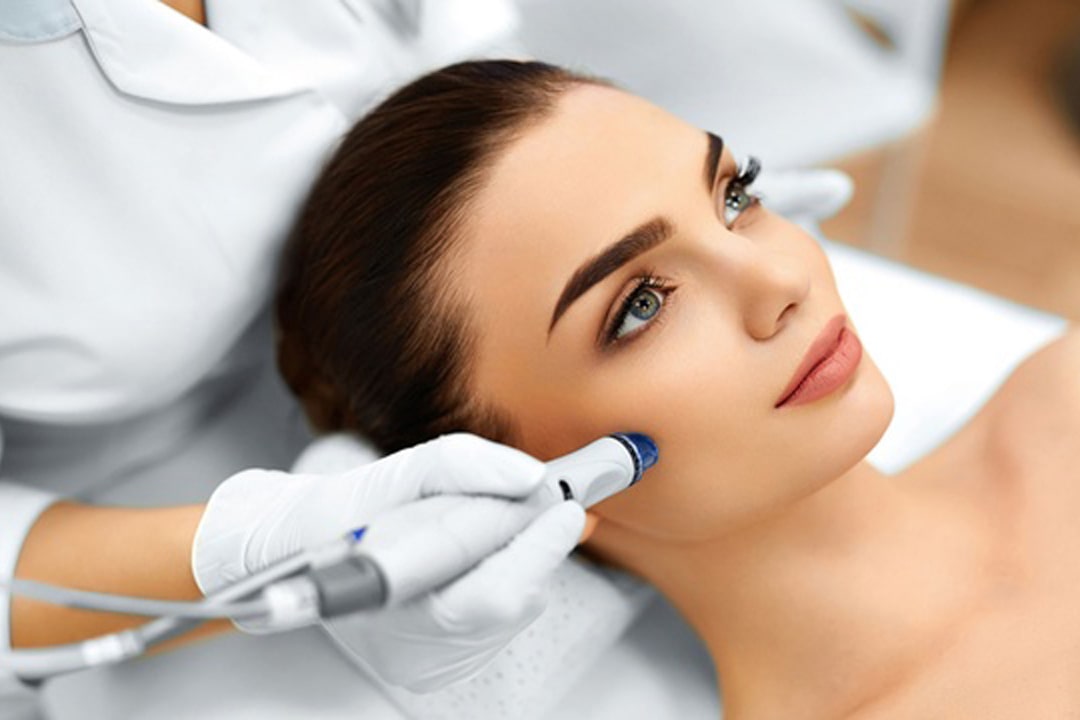
Master Cosmetologist
Educational Objectives
The education system at Dalton Institute includes a learning facility, experienced and competent instructors, and a comprehensive curriculum. The course is a full-time program for a minimum of 1500 clock hours. Upon completion of the course, the student will have acquired the technical abilities and academic theories that enable them to meet the requirements of the Georgia State Board of Cosmetology for licensure, get an entry-level job, perform cosmetology services offered in a full-service salon, and be able to earn a living. Other opportunities include becoming a salon owner, sales, marketing, platform work, instructor, and manicurist and stylist specialties.
The units of study and the completion requirements satisfy the requirements of the Georgia State Board of Cosmetology.
Our educational objectives for the Master Cosmetology Program are:
• To educate students to be professional, knowledgeable, and skilled for employment within the industry.
• To maintain a program that is constantly updated so students will have comprehensive knowledge to compete in the field of cosmetology.
• To promote the educational growth of the students using current teaching methods and techniques.
• To teach students to perform the basic manipulative skills in the areas of hair styling, hair shaping, hair coloring, texture services, scalp and hair conditioning, skin and makeup, and nail care.
• To teach courtesy and professionalism as the foundation of a successful career.
• To prepare the student to successfully pass the State Licensing Exam for entry-level employment.
Grading Procedure
Academic learning is evaluated after each unit of study by a written exam. Practical assignments are evaluated as completed and counted toward course completion only when rated as satisfactory. If the performance does not meet satisfactory requirements, it is not counted, and the performance must be repeated. At least two (2) comprehensive practical skills evaluations will be conducted during the course of study. Practical skills are evaluated according to text procedures and include Thermal Curling, Blow Drying, Chemical Waving, Roller Placement, Haircutting, Virgin Hair Lightening and Retouch, Basic Facial, Manicuring, and Hair Removal (tweezing, soft waxing, and hard waxing).
Students must pass with a 75% to be making academic satisfactory progress and to be eligible for graduation.
Students must maintain a written grade average of 75% and pass a FINAL written exam prior to graduation.
Students must make up any failed or missed exams.
Numerical grades are considered according to the following scale:
A: 90-100%
B: 80-89%
C: 75-79%
F: 74% and Below
The curriculum for students enrolled in the master cosmetology program will satisfy the required minimums set by the state of Georgia and will include a minimum of nine (9) months totaling 1,500 clock hours of theory (250 clock hours), practical training, and technical instruction (1,250 clock hours) covering all aspects of the industry.
The first 250 clocked hours are termed Level I. Level I instruction shall be provided by a licensed master cosmetology instructor. The licensed instructor shall require each student to obtain two hundred fifty (250) clock hours of Level I training before the student may perform any clinical services on a client/patron. At the conclusion of the 250 clock hours, students must be able to demonstrate the correct procedures of the practical tasks learned in Level I and pass all given written and practical tests with a minimum of 75%.
Upon satisfaction, students are then moved to the clinic floor. Students may now work with clients and perform learned tasks on paying customers. Instructors are present during the clinic procedures to further demonstrate, supervise, and inspect students’ work. During Level II training, students are in group theory classes daily. These theory classes are designed to provide students with the information needed to pass the written portion of the State Board Exam. The school offers a minimum of four (4) clock hours of theory training per week for the entire enrollment time of each student.
See the Hours Requirement Breakdown for a specific program for a more detailed description of the remaining hours of coursework. Your education will be complete with instruction from Georgia Licensed Master Cosmetologist Instructors, teaching classes on the latest trends in hair cutting, coloring, and advanced hair services.
The 1,500 clocked hours of instruction required for master cosmetology license shall be apportioned as follows:
Level 1 Total Hours: 250
1. THEORY – 50: (clock hours): Chemistry, Introduction to Skin Care & Nail Care, Bacteriology, Sterilization, & Sanitation, Personal Hygiene, Public Health & Safety, EPA; OSHA; Infection Control Standards and Blood Spill Procedures, AIDS; HIV and Communicable Diseases, Methods, Facility Hygiene; Clean-up Applications and Procedures
2. THEORY OF PERMANENT WAVING – 20: (clock hours) The Chemistry of Permanent Wave Solution & Its Reaction, The Chemistry of Relaxers & Its Reaction, The Principles of Permanent Wave Rod Placement.
3. THEORY OF HAIR COLORING – 45: (clock hours) Chemistry of Color, Principles of Color Applications, The Chemical Action of Hair Color
4. THEORY OF HAIR AND SCALP TREATMENTS AND CONDITIONING – 20: (clock hours) Hair Analysis, Scalp Condition, Treatments, Analysis, Condition & Treatments
5. THEORY OF HAIR CUTTING – 30: (clock hours) Hair Cutting & Proper Handling and Care of Instruments
6. THEORY OF SHAMPOOING – 15: (clock hours) Proper Procedures of Shampooing, Knowledge of Shampoo Formulas, Water Temperature
7. THEORY OF HAIRDRESSING – 45: (clock hours) 20 clock hours of training on mannequins, 25 clock hours of training on live models.
8. THEORY OF NAIL CARE AND SKIN CARE – 25: (clock hours) Concepts & Principles of Nail Care Procedures & Correct Handling of Instruments - (10 clock hours), Concepts & Principles of Skin Care Procedures & Techniques - (15 clock hours)
When a student has completed 250 clocked hours in the above curriculum, with a minimum passing score of 75%, the student is prepared to progress to the clinic floor to perform clinical services on patrons. The curriculum shall be as follows:
LEVEL 2 Total Hours: 1250
1. THEORY – 100 clock hours: Sterilization & Sanitation, Physiology, Electricity, Safety Precautions, Chemistry of Beauty Products, Actions/Reactions & the Composition of Tints, Dyes & Bleaches, Salesmanship, Telephone Etiquette & Ethics, Salon Deportment: Consisting of Instructions in Courtesy, Neatness & Professional Attitude in Meeting the Public
2. SOCIAL SKILLS, RECEPTION OR DESK WORK, ART & ETHICS, STATE BOARD OF COSMETOLOGY LAWS & RULES – 50 clock hours
3. LABORATORY – 50 clock hours: Preparing Germicidal, Germicidal Solutions, Shampoos, Tints & Bleaches, Practical Training, Sanitizing all Equipment.
4. HAIRDRESSING, SHAMPOO AND COMB-OUT – 280 clock hours: Shampoos, Comprising Dry, Soap-Less Oil & Reconditioner, Finger Waving, Wet Curls, Thermo-Curling, Blow Drying, Hair Styles, Comb-Outs & All Types of Pressing, Hot Combs & Chemicals
5. HAIR CUTTING AND SHAPING – 125 clock hours (minimum): 166 Applications.
6. PERMANENT WAVING – 180 clock hours (minimum): 60 Applications
7. CHEMICAL HAIR RELAXING - 100 (clock hours) min: 50 Applications
8. HAIR COLORING AND HAIR LIGHTENING – 140
a. TEMPORARY RINSES AND SEMI-PERMANENT COLOR - (10 clock hours min: 12 Applications)
b. HAIR LIGHTENING - (25 clock hours min:10 Applications)
c. VIRGIN TINTS - (40 clock hours min: 20 Applications)
d. RE-TOUCHES - (60 clock hours min: 30 Applications)
e. PRE-DISPOSITION TESTS -2 ½ clock hours
f. DYE AND TINT REMOVAL — 2 ½ clock hours.
9. SCALP AND HAIR TREATMENT - 50 (50 clock hours min: 66 APPLICATIONS): Brushing & Manipulations, Corrective Treatments, Reconditioning Treatments
10. FACIAL TREATMENT, MAKE-UP, AND HAIR REMOVAL - 55
a. FACIAL TREATMENTS — (30 clock hours min: 30 Applications)
b. MAKE-UP APPLICATIONS— (20 clock hours min: 20 Applications)
c. BROW AND LASH TINT — (5 clock hours min: 5 Applications)
11. HAIR REMOVAL – 30
a. LIP, CHIN AND FACE — (10 clock hours min: 20 Applications)
b. BROW TWEEZING — (10 clock hours min: 20 Applications)
c. BROW WAXING — (10 clock hours min: 20 Applications).
12. MANICURES, PEDICURES AND NAIL SCULPTING – 90
a. MANICURES WITH HAND AND FOREARM MASSAGE — (25 clock hours min: 25 Applications)
b. PEDICURES WITH FOOT AND LEG MASSAGE — (20 clock hours min: 20 Applications)
c. NAIL SCULPTING — (45 clock hours min: 15 Applications)
Total Hours = 1,500
Full Time Master Cosmetology Syllabus
| Week | Subject |
| 1 | Orientation & History and Opportunities |
| 2 | Life Skills & Your Professional Image |
| 3 | Communicating for Success & State Board Rules and Laws |
| 4 | Infection Control Principles and Practices |
| 5 | Anatomy and Physiology |
| 6 | Skin Structure, Growth, & Nutrition |
| 7 | Skin Disorders and Diseases |
| 8 | Nail Structure and Growth |
| 9 | Nail Diseases and Disorders |
| 10 | Properties of the Hair and Scalp |
| 11 - 12 | Basics of Chemistry |
| 13 | Basics of Electricity |
| 14 | Principles of Design |
| 15 - 16 | Scalp Care, Shampooing & Conditioning |
| 17 | Hairstyling |
| 18 | Haircutting |
| 19 | Braiding and Braid Extensions & Wigs and Hair Extensions |
| 20 | Chemical Texture Services |
| 21 | Hair Coloring |
| 22 | Hair Removal |
| 23 - 24 | Facials |
| 25 | Facial Makeup |
| 26 | Manicuring |
| 27 | Pedicuring |
| 28 | Nail Tips and Wraps |
| 29 - 30 | Monomer Liquid and Polymer Powder Nail Enhancement |
| 31 | UV Gels |
| 32 - 33 | Acrylic (Methacrylate) Nail Enhancements |
| 34 | Seeking Employment & On the Job |
| 35 | The Salon Business |
| 36 - 40 | No Theory-Salon Floor only |
| 41 - 46 | Review and State Board Preparation |
Course Curriculum
All courses taught at Dalton Institute will be offered in the English language.
There are:
1,500 total hours of coursework required for Master Cosmetology students.
When coursework has been successfully completed and all fees have been paid, students will then be eligible to take the GA State Board Exam. The Georgia State Board evaluates practical work, theory comprehension, and state board rules and laws.
Dalton Institute of Esthetics and Cosmetology utilizes the Milady curriculum for each course. The books are as follows:
Milady Standard Cosmetology, 14th Edition - ISBN-13: 9780357871492
Master Educator, 3rd Edition - ISBN-13: 9781133693697
Teaching Methods
Our school provides many teaching methods to offer you a comprehensive education, regardless of your learning style. The academic programs are designed to provide theoretical training and practical applications to instill good work habits, ethics, and professionalism. These methods include Interactive Lecture, Demonstration, Individualized Instruction, Group Discussion, Question and Answer, Role Playing, Field Trips, Guest Speakers, Problem Solving, Assignments, and Stories/Testimonials. Dalton Institute of Esthetics and Cosmetology believes that for our students to succeed, they will experience a three-step approach to our education model:
Students will:
LEARN IT with lectures and visual aids,
WATCH IT with live demonstrations by instructors and guest presenters, and
DO IT by performing services on mannequins and real clients.
Tuition and Other Costs
Program Costs:
Master Cosmetology – $19,500
Books/Kit/Tuition Included
Administrative Fee for all students: Application Fee $20.00 (Non-Refundable)
Administrative Fee for all TRANSFER students: Registration Fee $125.00 (Non-Refundable)
WITHDRAWAL FEE FOR ALL PROGRAMS: Withdrawal Fee $100.00 (Non-Refundable)
Tuition Breakdown for Charges by Payment Period in Master Cosmetology
900 hours (60% charged/disbursed in two equal charges 0 hours & 450 hours) = Tuition of $5850. Each 450 hours of instruction.
600 hours (40% charged/disbursed in two equal charges at 900 hours and 1200 hours) = Tuition $3900.
Total Cost $19,500
All Tuition Will Be Charged And All Financial Aid Eligible Funds Are Processed For Each Of The Payment Periods
Master Cosmetology
Payment Period 1: 1-450 Hours
Payment Period 2: 451-900 Hours
Payment Period 3: 901-1200 Hours
Payment Period 4: 1201- 1500 Hours
Student Kits
You will receive your student kit that is specific to the program you have enrolled into. Each kit is included in the price of tuition and the supplies in this kit are the tools for your success during your time here at Dalton Institute. It is extremely important that you take care of your kit and the supplies, as you should be using them every day for the duration of your education. The student kit must be kept at the school. We provide you with a student kit so that you may practice your new skills in school. If for any reason, your student kit needs to be replaced, this will be the financial responsibility and obligation of you, the student. Students are to use supplies from their kits for practice during all course instruction. Additional scrubs, t-shirts or other Dalton Institute apparel may be available for purchase. Check with your Instructor for a current list of items.
Master Cosmetology Kit
1. Mannequin
2. Hair Shaper
3. Stainless Steel Shaper Blade
4. 1250-watt Hair Dryer
5. Ice Tempered Shear
6. Single Blade Thinning Shear
7. Marcel Chrome Curl/Iron
8. Vent Brush
9. Styling Brush
10. Shampoo Cape
11. Spray Bottle
12. Spout Bottle
13. Steel Clips
14. Curl Clips
15. Magnetic Roller Flat-Pak
16. Manicure Kit
17. Shoulder Bag
18. Disposable Neck Strips
19. Make-Up Pallet
20. Fine Tooth Rattail Comb
21. Nylon Bristle Brush
22. Flat Iron
23. Consumable Supplies for Esthetics
24. Haircutting Comb
25. Perm Rods & End Papers
SUPPLIES: All other supplies are furnished by the school. Students are not allowed to bring in supplies from outside the school without the approval of an instructor. At no time shall outside products be used on any school clients without prior approval.
Work Environment
Cosmetology is the art of beautifying hair, nails, and skin. Becoming a cosmetologist teaches you how to work with these human body areas through beauty treatments and therapeutic processes. Cosmetologists help people attain their beauty goals through standard and innovative beauty treatments. Skincare specialists usually work in salons, health and beauty spas, and in medical offices. The job may involve a lot of standing. Skincare specialists must evaluate the skin’s condition, so good lighting and clean surroundings are important. Protective clothing and good ventilation also may be necessary because skincare specialists often use chemicals on the face and body. Cosmetologists work mostly in a salon, although some work in a spa, hotel, or resort. Some lease booth space in other people's salons. Some manage salons or open their own after several years of experience. Cosmetologists usually work in pleasant surroundings with good lighting. Physical stamina is important because they are on their feet for most of their shift. Prolonged exposure to some chemicals may cause irritation, so they might wear protective clothing, such as disposable gloves or aprons. Manicurists and pedicurists usually work in a spa or nail salon. The job involves a lot of sitting. Manicurists and pedicurists sometimes use chemicals when working on fingernails and toenails, so they often wear gloves, masks, and protective clothing.
Maximum Time Frame
The maximum time frame a student must complete the course is within 150% of the contracted end date. Periods during which a student has formally requested and received a leave of absence will extend the student’s contract and maximum time frame by the exact number of days in the leave of absence. Scheduled holidays or bad weather will not count in this calculation. Periods of illness, excused or unexcused absences, are counted in this calculation. Transfer hours from another institution that are accepted toward the student’s educational program are counted as both attempted and completed hours for the purpose of determining when the allowable maximum timeframe has been exhausted. SAP periods are based on scheduled contracted hours at this institution.
The 150% maximum timeframe for a 1500 clock hour, 47-week program is 71 weeks (47 weeks x 150% = 70.5 weeks = 71 weeks). This means that a student has a maximum of 71 weeks to complete the 1500 clock hour program.
The chart below gives an example of the maximum time allowed for regular full-time and part-time scheduled students:
Master Cosmetology - Full time 32 hours per week: 1500 hours ÷ 32 hours/week = 47 weeks. 47 weeks x 150% = 71 weeks max
The maximum time allowed for transfer students who need less than the full course requirements or part-time students will be determined based on their scheduled hours.
Any student exceeding the maximum time frame will be considered as passing if academic and theory grades are satisfactory. Any student who exceeds the maximum timeframe will be terminated from the program and would thereafter be permitted to re-enroll into the same program on a prorated cash-pay basis.
Career Opportunities
Color Stylist
Educational Instructor
Make-up Artist
Hair Stylist Platform
Artist Salon Consultant
Spa Director
Retail Specialist
Salon Management


